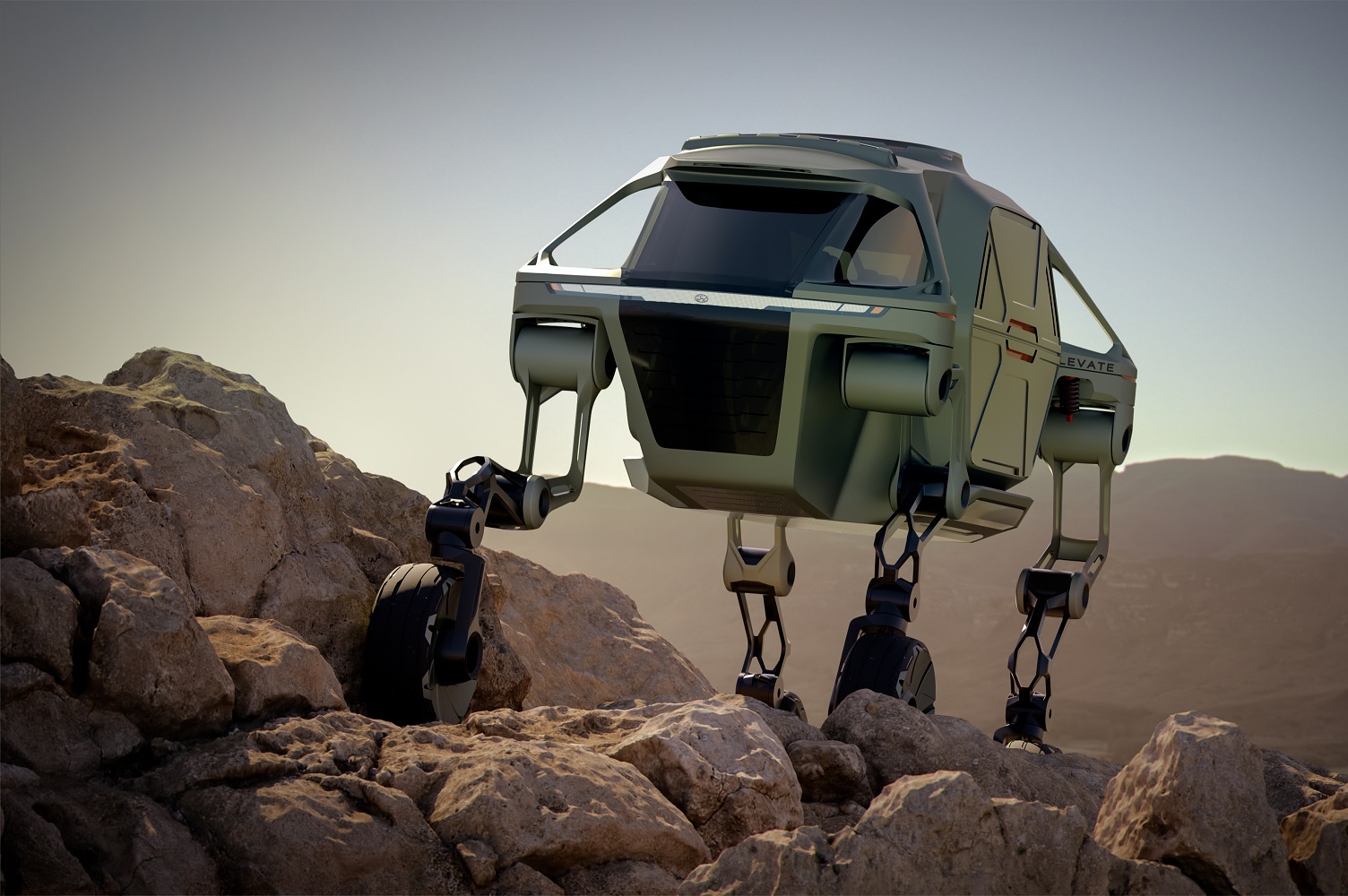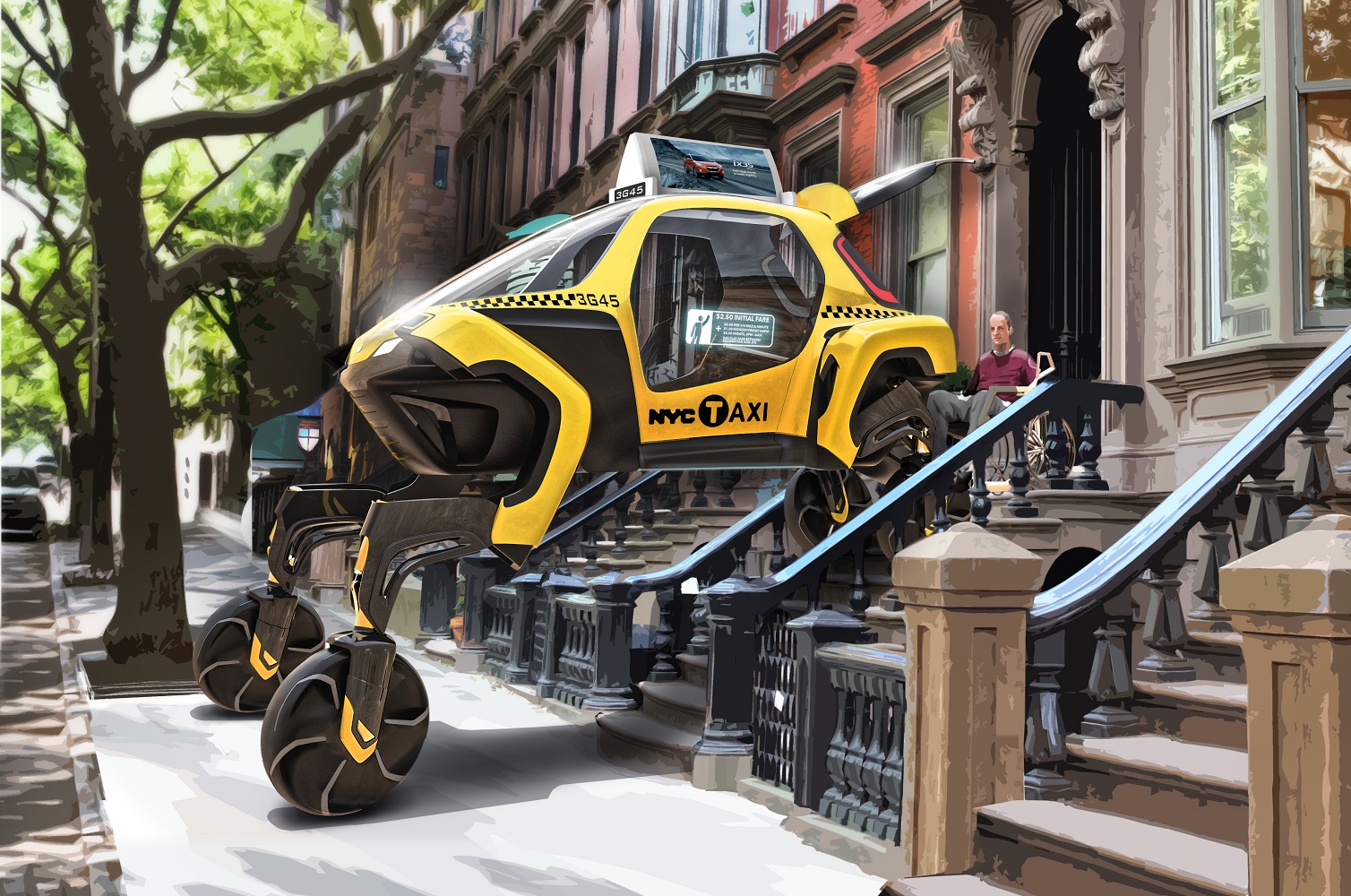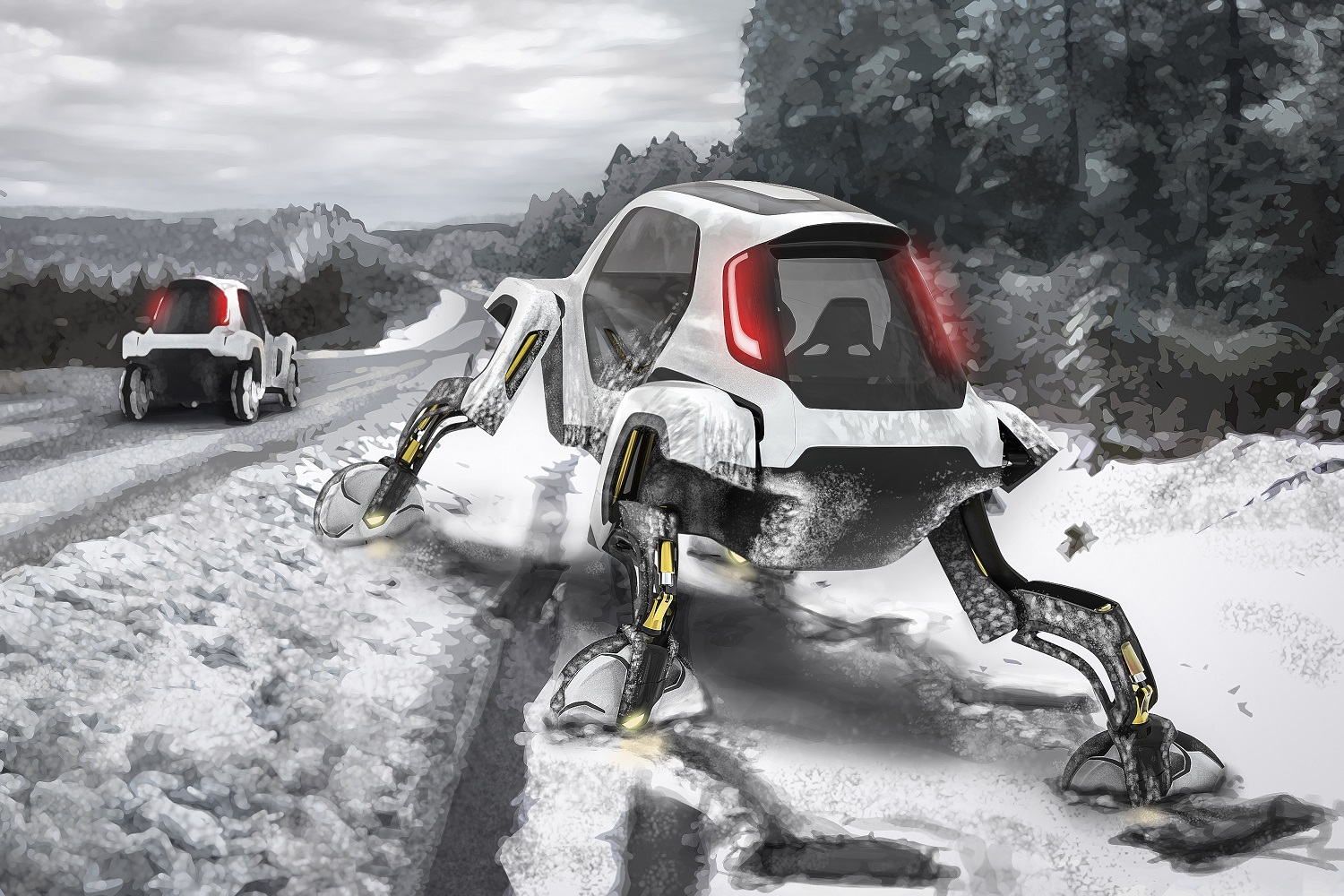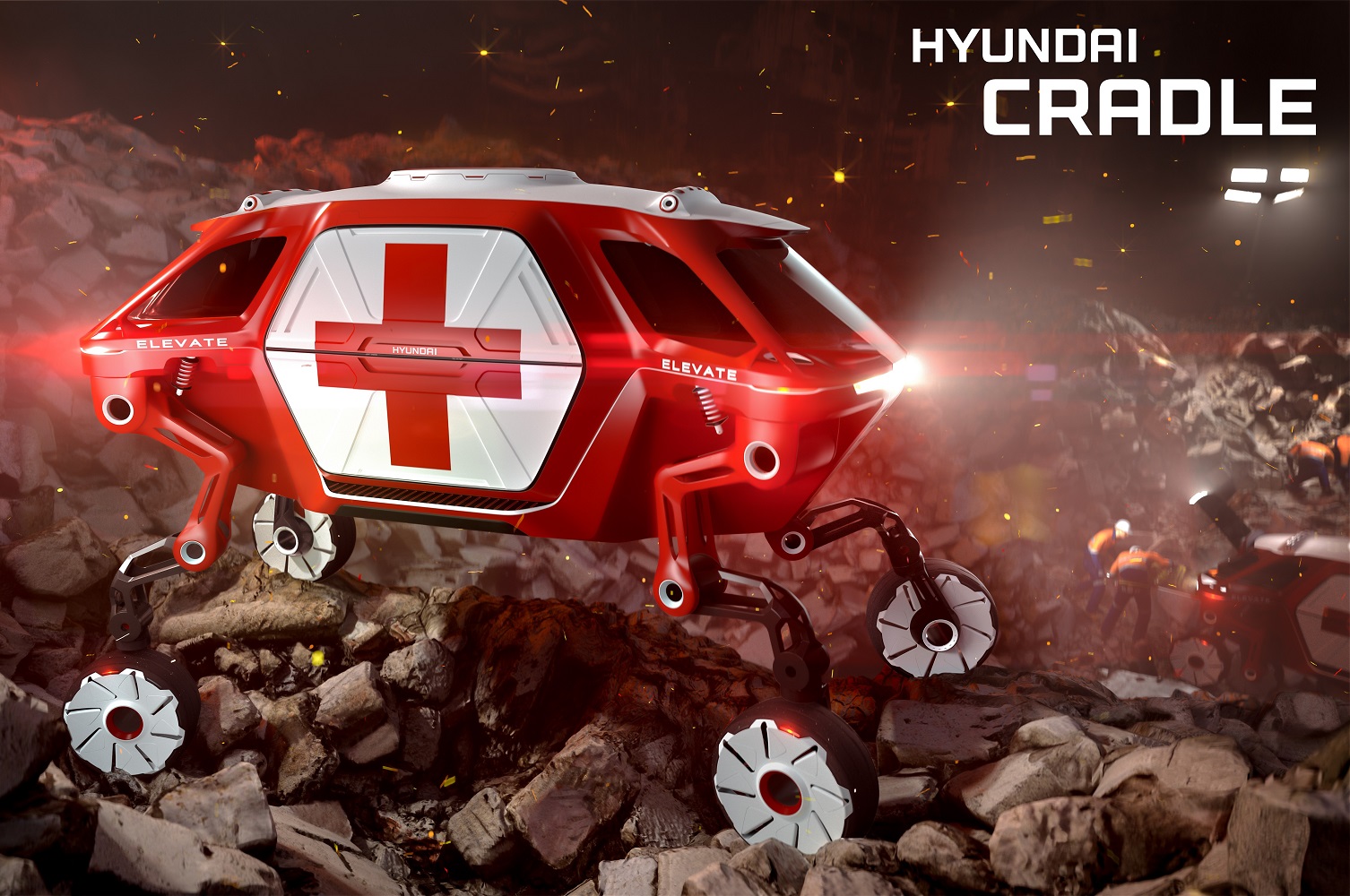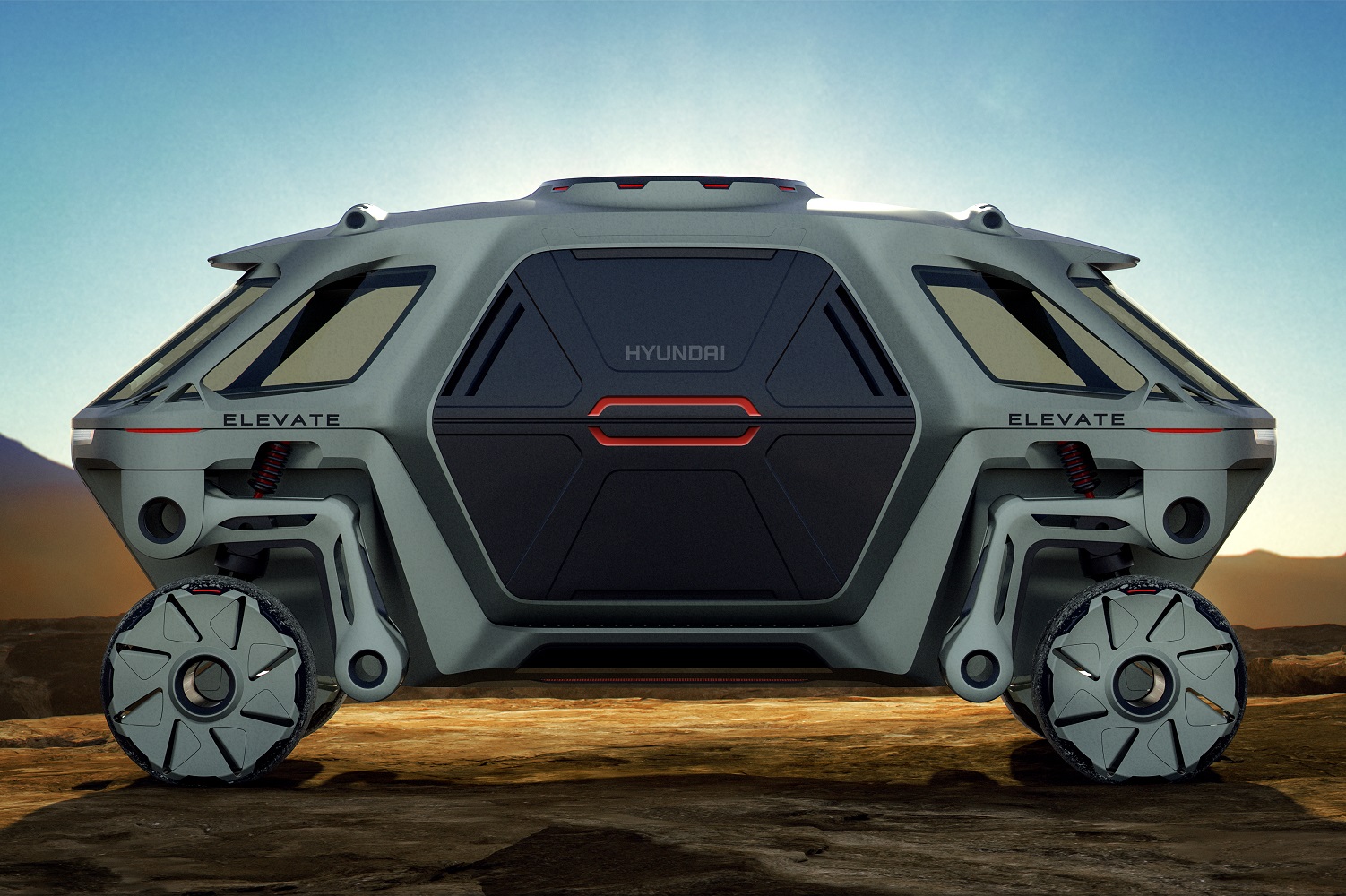Hyundai unveiled an unstoppable, science fiction-esque design study at CES that’s part car, part robot. Called Elevate, it’s a walking, van-like vehicle developed to help first responders travel over rough terrain that would stop even the most rugged SUV dead in its tracks.
More CES 2019 coverage
- Audi’s VR tech turns the car into a spaceship on wheels
- Toyota rolls out an updated autonomous car prototype for CES 2019
- Bell shows a flying taxi prototype
- Nissan’s ‘invisible-to-visible’ tech makes driving similar to a video game
The South Korean firm presented the Elevate as the ultimate mobility vehicle. It combines aspects of robotics and electric vehicle technology into a unique four-legged prototype that’s unlike anything we’ve seen before. While the possible uses of a car that walks are almost infinite, Hyundai is focusing at first on emergency response situations. The slim body of the vehicle has enough room to carry a stretcher with a patient aboard, and the large side doors are a way for responders to load patients in and treat them in place. The extendable legs with wheels on the ends are what allows the vehicle to move over various terrains, as they can roll like normal wheels or be extended to walk over obstacles or rough ground.
“When a tsunami or earthquake hits, current rescue vehicles can only deliver first responders to the edge of the debris field. They have to go the rest of the way by foot. Elevate can drive to the scene and climb right over flood debris or crumbled concrete,” said John Suh, Hyundai’s vice president and the head of its robot-focused CRADLE division, during the unveiling.
Suh said Hyundai sees many additional use cases for the Elevate. “People living with disabilities worldwide that don’t have access to an [Americans with Disabilities Act] ramp could hail an autonomous Hyundai Elevate that could walk up to their front door, level itself, and allow their wheelchair to roll right in,” he added.
Though technical specifications remain few and far between, and it doesn’t sound like Hyundai has built a working prototype yet, the firm noted that the Elevate rides on a modular electric platform that lets users swap out the body with relative ease. It can serve as an ambulance on one day and perform taxi duties the following day. What’s under the body stays the same regardless of how the top part is configured. The legs are powered by in-wheel electric motors, and autonomous technology allows the Elevate to navigate in a wide array of conditions. It can climb a 5-foot vertical wall, step over a 5-foot gap, walk like a reptile or like a mammal, and lower itself to drive at 75 mph on the freeway like a normal car.
Teaching a car how to walk is just as difficult as it sounds. Hyundai has worked on the Elevate concept for the past three years. Hyundai told Digital Trends the Elevate is just a research project at this time.
Updated January 7, 2019: Added full information about the Elevate concept.
Editors' Recommendations
- Watch Hyundai’s Ioniq 5 EV perform a crab walk
- Hyundai S-A1 flying taxis could take flight by 2023 for Uber elevate


